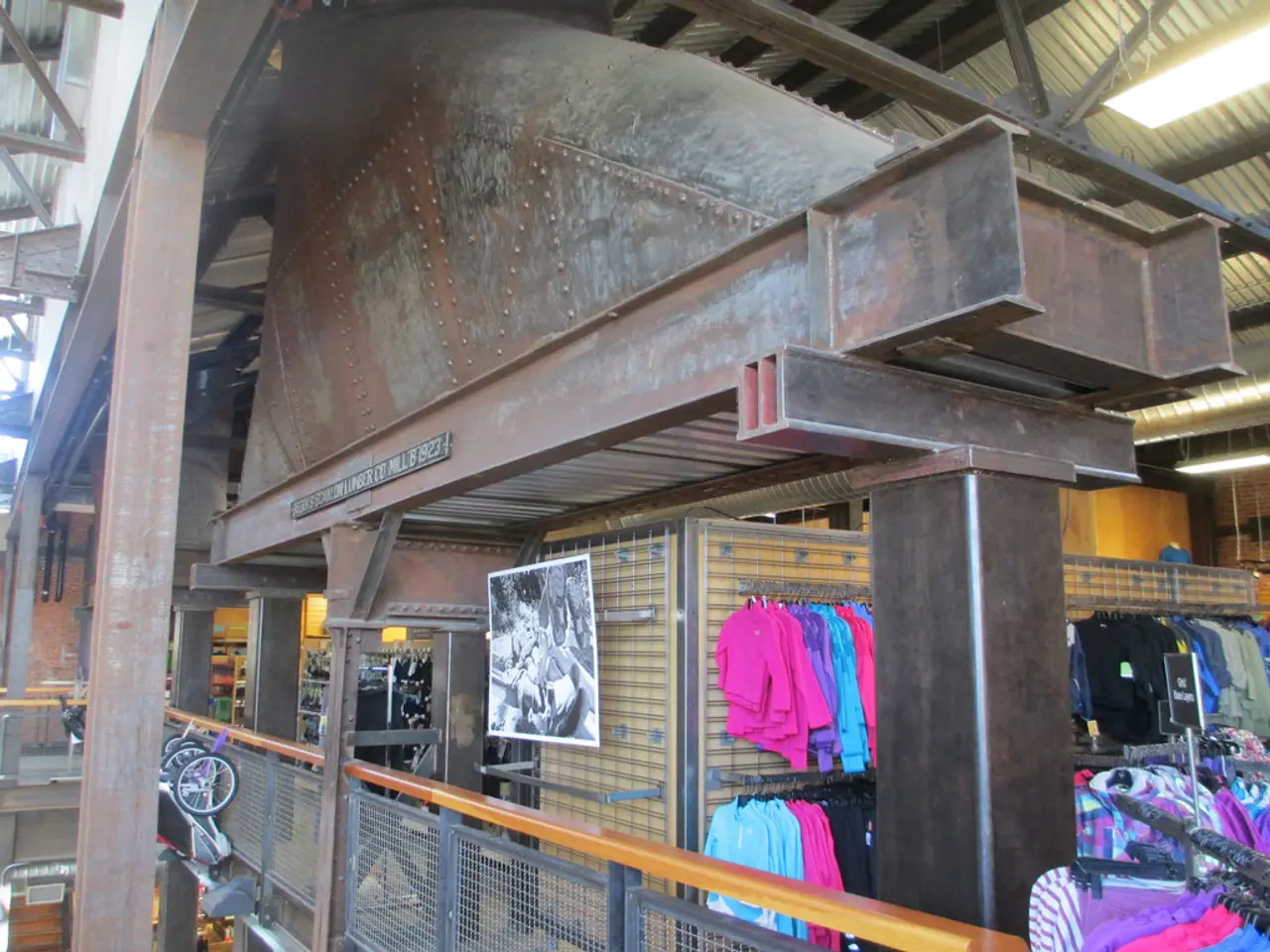Indigenous enterprises suspend shipments to the U.S., maintaining decades-old trade agreements intact.
In the face of escalating trade tensions between the U.S. and Canada, the future of Indigenous businesses is shrouded in uncertainty. Jack Royal, the chairman and CEO of the Indigenous Businesses Corporation, has expressed his concerns about the stability of the U.S.-Canada relationship and its potential impact on Indigenous businesses.
Matthew Foss, the vice president of research and public policy at the Canadian Council for Indigenous Businesses, has called for a resolution that would allow Indigenous Peoples to continue their established trade routes. This is crucial as Indigenous craftworks are currently exempt from tariffs under the Canada-U.S.-Mexico trade agreement, but the documentation needed to secure this exemption may be too cumbersome for a small business to handle.
In an effort to maintain business continuity, Canada Post has informed some business owners it is working to understand the new order, assess options, and secure solutions. For the next six months, carriers handling orders sent through the global mail network can choose a flat duty of $80 to $200 per package instead of the value-based rate.
However, purchases that previously entered the U.S. valued under $800 without needing to clear customs will now require vetting and be subject to their origin country's applicable tariff rate, which can range from 10 to 50%. This has led some small Indigenous businesses, such as Tribal Spirit Drums and Music and Cedarlilie Beads, to halt U.S.-based sales due to the de minimus changes. Stevi Riley, who operates The Beaded Hero, has also decided to stop all sales in the U.S. due to the new import rules, fearing a 35% increase in shipping costs and potential issues with customs.
The Canadian Council for Indigenous Businesses is regularly engaging with the Canada Trade Commissioner Service to work on solutions to cross-border trade with Indigenous businesses. Chief Roger Redman of Standing Buffalo First Nation has brought forward a resolution calling for the AFN to help fund a legal opinion on Aboriginal and treaty rights to cross-border trade, and for the AFN to urge the federal government to include First Nations in all negotiations related to tariffs and trade policies.
The Assembly of First Nations annual general meeting has resolutions up for debate, including one on cross-border trade advocacy and funding a legal opinion on Aboriginal and treaty rights to cross-border trade. The federal governments of Canada and the U.S. are responsible for finding a way to honor the treaties that have been signed in the past.
Historically, the trade ties between Canada and the U.S. have been strong, pre-dating the founding of both countries. However, the current U.S. President, Donald Trump, has implemented a tariff regime that is causing some small Indigenous businesses in Canada to halt shipments to the U.S. Former U.S. President Joe Biden and members of Congress have discussed the issue of tariffs affecting Indigenous businesses in Canada.
As the situation evolves, O'Bonsawin, an unspecified individual, hopes for a return to normal in U.S.-Canada trade agreements. The Canadian government has not ratified the International Labour Organization Convention 169, which legally binds the inclusion of indigenous peoples in decisions affecting them, including trade policies. There is no publicly available specific statement indicating that Canada currently integrates First Nations' rights explicitly in all trade and tariff negotiations with the United States or has resolved administrative barriers hindering small indigenous businesses in trade.








